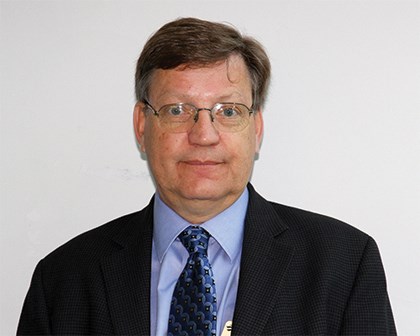Faculty in several programs at the College of New Caledonia are preparing for layoffs.
This comes after administration met with faculty late last week with a partial list of names from its two dental programs, upper level accounting courses, the focus employment program in Burns Lake and the fetal alcohol syndrome program.
The plan, said CNC president Henry Reiser, is not to cut the courses completely but rather to suspend, review and offer renewed programs when they're ready.
"Our delivery model needs to be investigated," said Reiser, adding some curriculum is dated.
The college is facing a $2.8 million deficit and this is part of the approach to "stabilize the finances of the institution," Reiser added.
The exact number of affected faculty is still being determined, but Reiser estimated about 20.
The college is required to notify faculty of layoffs by the end of March to comply with its collective agreement and those affected would be out of work starting Aug. 1.
Before the notices can be formally sent, the Board of Governors, which meets March 27, must approve the program suspensions.
David Rourke, president of the college's faculty association, said the meetings came as a surprise.
"We were expecting that the college would find administrative efficiencies to address their budget deficits," said Rourke, referencing two new associate dean positions created for trades and health sciences. "It was our understanding that those positions didn't need to be filled, that the college could operate quite well without those."
"Right now they're talking about cutting viable healthy programs, programs that serve important needs in our community."
"These folks aren't going to go down without a fight. The faculty in those programs are going to be making presentations to board on the 27th."
Rourke said the proposed changes would affect full-time faculty who teach the courses, but Reiser suggested it would mostly affect part-time and sessional instructors given some instructors' seniority.
While Resier was careful to clarify the suspensions are not cuts, Rourke said faculty has been dealing with program interruptions and layoffs since 2002.
"We've seen nothing but cuts from CNC," Rourke said. "It's semantics. Cancellation, suspension, discontinuation. In our view they're all the same thing because there's going to be an interruption of programing in any event so our members will be laid off and students will not have those opportunities until something comes back."
Under the College and Institute Act a board must follow a process, including advice from its education council, for any cancelled courses.
Reiser said the college has every intention of offering the programs again, hopefully in the 2017 to 2018 school year.
Part of the problem, Reiser said, is the college's history of offering low tuition. Under provincial legislation, it can increase tuition by two per cent each year, but if a program is suspended and changed substantially, the college can re-offer it at higher tuition rates.
In the meantime, Reiser said students, faculty and administration would each bear a third of the cost of addressing the $2.8-million deficit.
That also means cuts to operational staff, said Lily Bachand, president of local 4951 which represents more than 330 staff.
"We don't know the full numbers yet," said Bachand, because unlike the faculty agreement, operational staff can be laid off year-round.
At the very least, she said it should affect three in the dental department and at the next meeting, the board will consider a recommendation to close the daycare, which affects four staff.
Bachand noted these are still recommendations until the board approves them, but with the size of deficit, she expects it will be the worst year since she became president in 2005.
"Unless the funding model changes then what will continue to happen is what's going to happen now," she said, pointing out the province for greater support.
"We as a society we as a province need to say education is top on our list for our children for our future.



